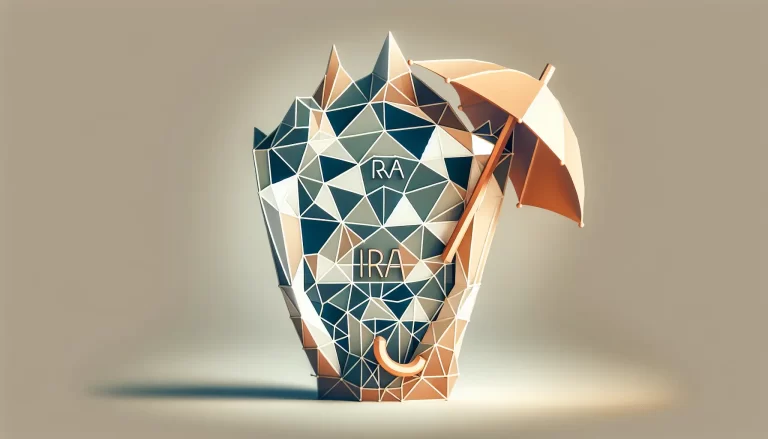A Palladium IRA offers a unique opportunity to diversify your retirement portfolio by investing in a precious metal with significant industrial demand and inflation-hedge qualities.
Expect to spend 9 Minutes reading this article.
In this article we are going to break down and look at the distinct advantages and disadvantages of Palladium IRAs.
I am assuming you are here because you are slightly aware of how Precious Metals have performed through inflationary periods in the past.
Or you may be familiar with the trends during inflationary periods, the value of palladium tends to maintain or even increase. This is partly due to its significant industrial demand, especially in the automotive sector.
So, I have also thrown in a few links to other types of Precious Metal IRA information, like Gold and Silver.
Quick Disclaimer:
The content provided in this article is for informational purposes only and should not be considered financial or investment advice. Always consult with a qualified financial advisor before making any decisions regarding Precious Metal IRAs or investing. Additionally, this article contains affiliate links, and I may earn a commission if you make a purchase through these links, at no additional cost to you.
What is a Palladium IRA?
A Palladium IRA is a type of self-directed IRA that allows you to include palladium in your investment portfolio.
Unlike traditional IRAs that primarily focus on stocks, bonds, and mutual funds, a Palladium IRA provides the flexibility to invest in this precious metal.
This can be particularly beneficial for those looking to diversify their investments.
A self-directed IRA gives you more control over your investment choices, allowing you to include palladium alongside other metals like gold and silver.
This offers a unique alternative to traditional investments and can be an effective way to hedge against economic instability and inflation.
Industrial Demand
Palladium has high industrial demand, particularly in the automotive industry for use in catalytic converters.
This industrial application underpins its value and offers extra reassurance for your investment.
The demand in various industries helps support the market price of palladium.
| Benefit | Description |
|---|---|
| Diversification | Reduces risk by spreading investments across different asset classes. |
| Inflation Hedge | Maintains or increases value during inflationary periods. |
| Industrial Demand | High demand in automotive and other industries supports value. |
To learn more about setting up a Palladium IRA, including choosing a custodian and meeting IRS standards, visit our guide on ira account setup.
Setting Up Your Palladium IRA
Choosing a Custodian
The first step in setting up your Palladium IRA is selecting a custodian. <- This article specifically mentions Palladium IRA custodians.
A custodian is a financial institution responsible for managing your account and ensuring compliance with IRS regulations.
It’s crucial to find a custodian who specializes in self-directed IRAs as they have the expertise required for handling precious metals like palladium.
When choosing a custodian, consider the following factors:
- Experience and reputation: Look for a custodian with a proven track record in handling precious metals IRAs.
- Fees: Compare the setup, maintenance, and storage fees among different custodians.
- Services: Ensure the custodian offers comprehensive services, including secure storage and insurance.
You can find more information on choosing a custodian in our detailed guide on IRA custodians.
Meeting IRS Standards
The IRS has specific standards that precious metals, including palladium, must meet to be eligible for inclusion in a precious metals IRA. These standards ensure the quality and authenticity of the investments.
Here are the key requirements:
Purity Standards: The palladium must meet a minimum fineness requirement. For palladium, the IRS requires a minimum fineness of 0.9995 (U.S. Gold Bureau).
Approved Forms: The palladium must be in the form of bars or coins that meet certain specifications. Rare or collectible coins are excluded from investment (Forbes).
Storage Requirements: The IRS mandates that the palladium must be stored in an approved depository. The metals cannot be held physically by the IRA owner.
Here is a summary of the IRS purity standards for different precious metals:
| Metal | Minimum Fineness |
|---|---|
| Palladium | 0.9995 |
| Gold | 0.995 |
| Silver | 0.999 |
| Platinum | 0.9995 |
To ensure your investments meet these standards, it is vital to work with a custodian who understands and adheres to these requirements. You can learn more about these standards in our article on precious metals IRA.
For additional information on IRA setup and compliance, visit our guide on IRA account setup.
Setup and Maintenance Fees
The initial setup fees for a Palladium IRA typically range from $50 to $100.
This fee covers the administrative work required to establish your account. In addition to setup fees, you will also encounter annual maintenance fees. These can range from $75 to $300 per year, depending on the custodian you choose and the services they offer.
| Fee Type | Cost Range |
|---|---|
| Setup Fee | $50 – $100 |
| Annual Maintenance | $75 – $300 |
For more information on choosing a custodian, visit our guide on ira custodian.
Storage and Insurance Costs
The security and storage of your palladium must utilize IRS-approved depositories.
These depositories are designed to protect your investment with state-of-the-art security measures. The cost of storage and insurance typically ranges from $100 to $300 annually, depending on the value of your palladium holdings.
| Fee Type | Cost Range |
|---|---|
| Storage and Insurance | $100 – $300 |
These fees are essential for ensuring the safety of your investment. For more details on storage options, see our article on gold ira storage.
When planning your IRA investment, always consider these costs to understand the total expense involved. You’ll also want to be aware of potential ira withdrawal rules and ira penalties associated with your Palladium IRA.
Tax Considerations
Withdrawal Rules and Penalties
If you withdraw funds from your Palladium IRA before the age of 59½, you will incur a 10% early withdrawal penalty in addition to regular income tax liabilities.
Once you reach the age of 72, Required Minimum Distributions (RMDs) must begin for traditional Palladium IRAs. Failing to take these RMDs can result in a severe 50% penalty on the amount you should have withdrawn.
| Age | Penalty | Additional Tax |
|---|---|---|
| Before 59½ | 10% | Regular Income Tax |
| 72 and above | 50% on missed RMDs | – |
Gains on collectibles, such as palladium held in a Precious Metals IRA, can be taxed at a maximum capital gains rate of 28% if held for more than one year, which is higher than the typical long-term capital gains rate (Noble Gold Investments).
For detailed guidelines and further information, you might want to explore our articles on IRA withdrawal rules and IRA tax advantages.
For more insights on setting up your IRA, visit our guide on IRA account setup.
Risks and Rewards
When considering a palladium IRA, understanding the risks and rewards is crucial. This section will cover key factors like market volatility and the potential for palladium to act as an inflation hedge.
Market Volatility
And so, Palladium, like a lot of the other precious metals can experience significant price fluctuations.
Its prices are known to be more volatile compared to gold and silver, but as we discussed has some unique benefits. This volatility can be influenced by various factors such as industrial demand, geopolitical events, and market speculation.
Investors should be aware that these price swings can impact the value of their IRA investment. While this volatility can offer opportunities for high returns, it also poses risks, especially for those who are risk-averse.
| Metal | Volatility (High, Medium, Low) |
|---|---|
| Gold | Medium |
| Silver | High |
| Palladium | High |
For more on managing these risks, check out our article on precious metals investing.

